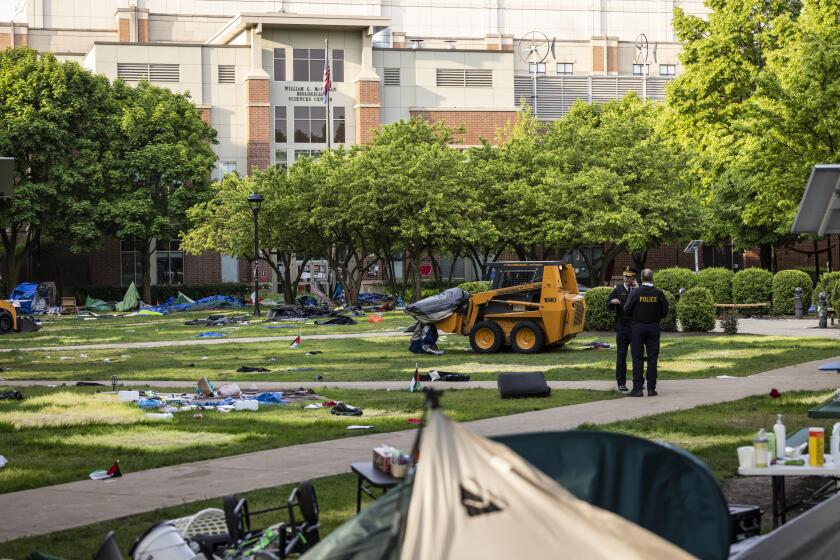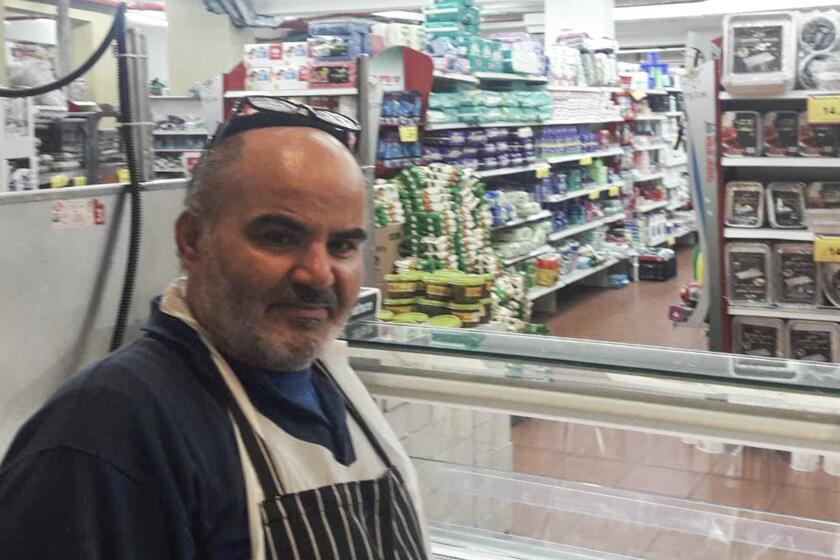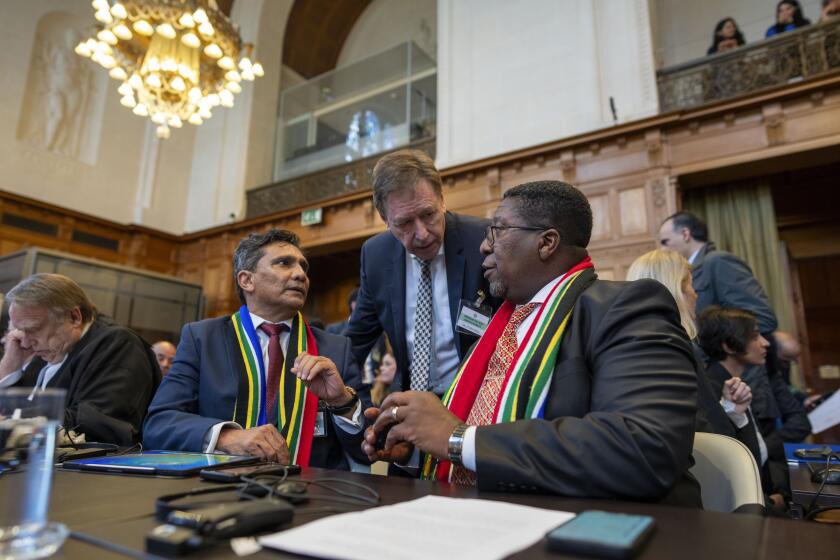Shortages Sweep Britain as Protests Choke Fuel Supply
With fuel shortages hitting supermarkets, hospitals and the Royal Mail, British Prime Minister Tony Blair on Wednesday blamed protesters for causing “real damage to real people” and called for an end to blockades at depots and refineries.
Two-thirds of the country’s 13,000 gas stations remained dry, although some blockades were lifted and police began escorting tanker trucks. Station managers said it could take weeks for the situation to return to normal.
The loosely organized demonstrations against high fuel costs have tied up traffic and laid siege to suppliers for days. On Wednesday, farmers and truckers took their protest to the prime minister’s doorstep, snarling traffic in central London for hours.
Meanwhile, the National Health Service put hospitals on “red alert,” ready to delay all but vital surgeries. Some supermarkets reported a run on basic supplies, such as bread and milk. Royal Mail deliveries were delayed, causing cash-flow problems for some businesses, and some schools closed.
Business leaders say the protests against high fuel prices are costing the country $350 million a day in lost revenue. Similar demonstrations have swept the Continent in recent weeks.
A day after he said the situation in Britain would be on the mend, Blair had to admit that the country was in the midst of a national crisis. Certainly it was the worst crisis that Blair has faced since his landslide election in May 1997, and it continued to grow.
The leader of the opposition Conservative Party, William Hague, called for the immediate recall of Parliament from its summer break, insisting that the crisis had come about because “Tony Blair never, ever listens to people. I think he should be brought to the one place where ministers have to listen.”
Blair said he has not ruled out reconvening Parliament, although he first wanted to focus on the situation at hand.
He refused to back down and lower fuel taxes, a stance matched by the leaders of Germany and Belgium in the face of similar protests. Earlier this month, French leaders offered tax reimbursements to truckers in an effort to end demonstrations.
Europeans, and particularly Britons, pay some of the world’s highest prices for gasoline, and those prices have been climbing over the last two years. Pump prices in London are around $4.50 a gallon, about 75% of which goes for taxes. (In the U.S., taxes make up about 27% of the price of regular-grade gas.)
That is what farmers and independent truckers here are protesting and the reason they have had broad support so far from the British public.
Blair said that while he understood public frustration with the high cost of fuel, he could not give in to blockades.
“No government, indeed no country, can retain credibility in its democratic process or its economic policymaking were it to give in to such protests. And if we were to give in, how long would it be before another grievance emerged, the same tactics used with another group of people,” Blair said in his second news conference in as many days.
No matter what people think of fuel taxes, he said, “no one can seriously think that it is right for a British government to let policy be dictated by direct action of this sort. The idea that a picket at a refinery gate can determine whether hospitals or ambulance services or public transport qualify as essential services is an affront.”
Several hundred tanker trucks did make their way out of depots and refineries Wednesday, but that was a fraction of the about 10,000 deliveries made to gas stations on a normal day.
Frustrated at the slow resumption of service, Blair called oil company executives onto the carpet for a second day and put military personnel on standby to deliver fuel if necessary.
Oil company officials told the prime minister that their drivers were being threatened and feared for their safety, but it appeared that at least some of them were refusing to work out of sympathy for the protests.
While polls showed public support for the demonstrations still running high--78%, according to a BBC television poll--there was some evidence of erosion as life has become more difficult. The same poll showed that if emergency services were seen to be under threat, support dropped to 36%.
Some services were beginning to cut back. A handful of schools closed out of fear that they would not have enough teachers to ensure safety. The postal service said its deliveries faced “significant disruption” unless there was a dramatic improvement in fuel supplies. Some stores began rationing basic goods after panicked shoppers tried to buy them out.
Paul Larmond, a telephone engineer who has had to leave his car at home and take the subway to work, was stocking up on long-lasting milk products and other supplies at a west London supermarket Wednesday night, fearing further shortages.
“My support [for the protesters] is about 50-50 now,” he said. “I was supporting them at the beginning, but now I think it’s beginning to affect everybody--hospitals, older people and people who need help. I think it should stop.”
Still, supportive or not, most people blamed the government rather than oil companies or even the oil-producing nations, the price of whose export has increased this year to about $34 a barrel from $24.
“The taxes are too high, it’s just not fair,” said taxi driver Frank Briggs. Government officials “are digging themselves into a hole. I don’t think they’ll bring [taxes] down now because they’ll lose face. But the next budget, they will.”
In Germany, where fuel taxes are scheduled to rise at the start of next year, Chancellor Gerhard Schroeder was met by angry protesters in the northern city of Schwerin. They blockaded the city center with trucks and tractors as the chancellor arrived by helicopter, then booed and heckled him on the ground.
Schroeder warned protesters that they were only hurting Germany’s economy.
“Drop this dangerous game, because it could threaten the growth and employment prospects we currently have,” he said. But Germany’s national truckers association called for new protests later this month to slow traffic on the autobahns.
Belgian Prime Minister Guy Verhofstadt also refused demands for a fuel-tax rebate for the trucking industry, even as protests expanded to major freeways and border points in Belgium. Belgian truckers blocked most of the entrances to Antwerp, the second-largest port in Europe.
*
Janet Stobart in The Times’ London Bureau and Associated Press contributed to this report.
More to Read
Start your day right
Sign up for Essential California for news, features and recommendations from the L.A. Times and beyond in your inbox six days a week.
You may occasionally receive promotional content from the Los Angeles Times.






